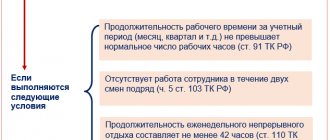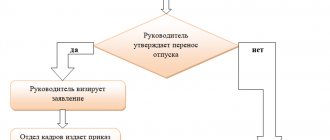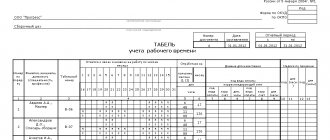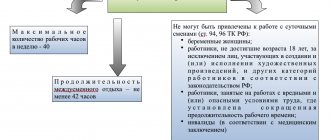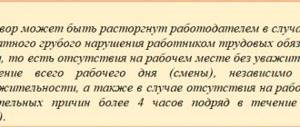Is vacation extended for public holidays?
Dear Galina.
Yes, it is extended.
According to part one of Art. 120 of the Labor Code of the Russian Federation, the duration of the annual main and additional paid leaves of employees is calculated in calendar days. In this case, non-working holidays falling during the period of annual main or annual additional paid leave are not included in the number of calendar days of leave.
This rule does not provide for any exceptions, therefore holidays are not vacation days FOR ANY working hours, including shift work. Please note that in Art. 120 of the Labor Code of the Russian Federation is not about increasing the duration of vacation. If there are holidays during the vacation period, then the end date of the vacation, calculated based on its duration, is postponed by the number of days corresponding to the number of holidays. In this case, it is not the duration of the annual paid leave used by the employee that increases, but the duration of the rest period when the employee is legally released from performing his job duties.
If immediately after the end of vacation in accordance with the shift schedule there is a day off, then, of course, there is no need to go to work on such a day. A day off is an independent type of rest time specified in Art. 107 of the Labor Code of the Russian Federation along with vacation. In turn, rest time is the time during which the employee is free from performing work duties and which he can use at his own discretion (Article 106 of the Labor Code of the Russian Federation).
It is necessary to start work on the working day closest to the end of the vacation, which is according to the employee’s schedule. This fact is not reflected in any way in the order granting leave. It indicates only the number of days that are vacation days, as well as the vacation period.
With respect, Timoshenko Vladimir Andreevich.
Labor law periodically raises unusual questions. Sometimes they lead employers to a dead end: on the one hand, a dispute with an employee, on the other, a conflict with the law.
One such story is related to shift schedules and rest on holidays. We all want shops, cinemas, and service businesses to be open on weekends and holidays. Fortunately, business understands this and does not close retail facilities, despite the fact that this is not cheap. But social services and law enforcement agencies: the police, clinics and hospitals, housing and communal services facilities and others must also work constantly. Continuity and shift modes are used in almost all industries.
When you are not familiar with the shift schedule, you do not realize that while everyone is on vacation, people are working there. Meanwhile, according to Art. 153 of the Labor Code of the Russian Federation, work on weekends or non-working holidays is paid at least double the amount. Thus, every seller working, say, from January 1 to January 8 should receive double salary for these days. Understanding this, many workers are ready to work on holidays. In addition, they usually work on a shift schedule and get rest on other days. And the shift regime affects many industries - from law enforcement and aviation to production facilities and trade. One can only guess how many employees work on holidays and receive a bonus - double pay for these days. And payroll costs are one side of the coin.

